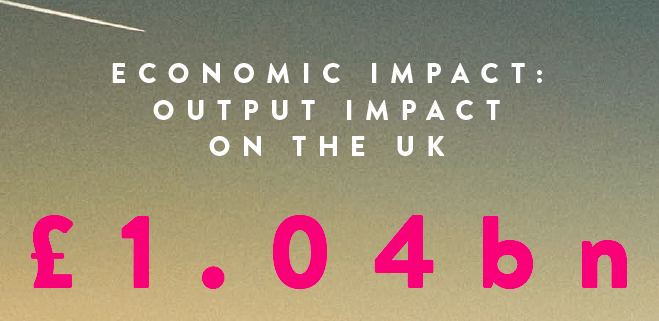
When I saw the above value in a recent declaration by a UK university, I could immediately visualise the exuberance, the glee, with which it would have been received in the particular Vice-Chancellor’s Office.
It’s been a while since I have contemplated the discourse of excellence that is endemic in British higher education, and this mental image took me straight back to my 2015 PhD thesis which featured a fictional vignette entitled ‘We are not just ranked in the top; we are in the top 20 ranking’ (see below).
I now see also an interesting and to my mind, most welcome development in this field by way of an international research collaboration on the topic of ‘Grimpact’, which aims to get beyond the domination of economic and non-controversial versions of impact.

Here are two informative blog posts outlining the critical blind spot in the impact agenda; that it has been understood and defined solely in positive terms –
Grimpact: What it is and why research needs to talk about it by Gemma Derrick
Grimpact: Time to acknowledge the dark side of the impact agenda by Gemma Derrick and Paul Benneworth
And you can find here an open access paper on Towards characterising negative impact: Introducing Grimpact.
Three examples of Grimpact
In her post Derrick provides three extreme examples of Grimpact: firstly, the rejection of the MMR vaccine and resulting deaths from Measles; secondly, the generation of a tool that was capable of discerning the emotions of users of social media platforms, leading to the violation of ethical boundaries for political gain; and thirdly, the deregulation of financial services with the resulting behaviour of banks in response to the 2008 financial crisis validated by an overarching belief in economists and economic theory that promoted free-market, laissez-faire approaches.
The latter example reminds me of an excellent 2014 publication by Philip Roscoe, ‘I Spend, Therefore I Am: The True Cost of Economics’. My blog post on The utility of the economic lexicon in HE was inspired by a reading of Roscoe’s book.
The Grimpact agenda is clearly one to watch.
‘We are not just ranked in the top; we are in the top 20 ranking’
In writing my PhD thesis on the topic of the idea and experience of academic community, I followed Andrew Sparkes’ less traditional approach and produced three fictional vignettes, aimed a revealing elements of academic life within a fictional setting. All three pieces illustrate the institutional culture of contemporary higher education, or as observed, it’s brutality and crassness. They also illustrate the day-to-day lives of the research participants. Bryan (an emeritus professor) is subject to a surprise move as, in his absence, his office (and his status) is eradicated; Jonathon (an academic leader) introduces a new member of staff to a different way of meeting the team, and the Vice-Chancellor gives an address that is steeped in the language of excellence that pervades the institutional discourse, a language from which there is no escape.
The Vice-Chancellor’s address, given below, is made up from phrases selected from the official corporate narrative of the University of Greystone, the site of the research. The confidence of the institutional discourse is emblematic of the grand narrative that tends to be a strong feature of universities today.
The Vice-Chancellor of Greystone gives an address.
‘Let me state at the outset that it is our leadership that is at the forefront of an outstanding reputation. The major contributions we shall make will undoubtedly be our greatest impact. Our particular strength is that we are well equipped for the pursuit of excellence. We are agenda setting internationally, avowedly ambitious and world-leading due to exceptional strengths that make us world-class. Being among the best with our high-quality, high-achieving and highest standards, which are undeniably of the highest quality and thereby market-leading at a high-level. This high-class and high-impact status must be the highest possible. Our highest ambitions, driven by the highest calibre leadership, enable the highest achievements and therefore the highest possible global influence. Inevitably this highest possible performance from our high performing team ensures a high academic engagement. From such a high base we can gain an edge. Our standards will be ratcheted up, supported by a long and proud history with its international distinction making us excellent in our excellence. This excellent achievement, regarded by all as an exemplar of good practice, is not just exemplary but is regarded as internationally excellent. Being internationally recognised, and being internationally aware, our international significance ensures us the strongest international position. Such international recognition of our extraordinary potential keeps us firmly in the top, in the top flight and on the top tier. And we are not just ranked in the top; we are in the top 20 ranking. Recognised as globally strong, the University excels and we can contribute equally with the best universities in the world. And this enviable reputation delivers an exceptional education, and with excellent research our excellent achievement is second to none. Building on the successes, which put us well within the world top 100, our intellectual power and influence obliges us to play a leading role. Our consistent top-20 ranking is an outstanding contribution, which is ranked in the top quartile. Being successful, inevitably there is public good flowing from what we do. This public good ensures a strong culture and our pioneering work in this area is a powerful combination, and a powerful platform. We are, simply, inspiring and innovative.’
What phrases would you suggest to make this excellent address more excellent?